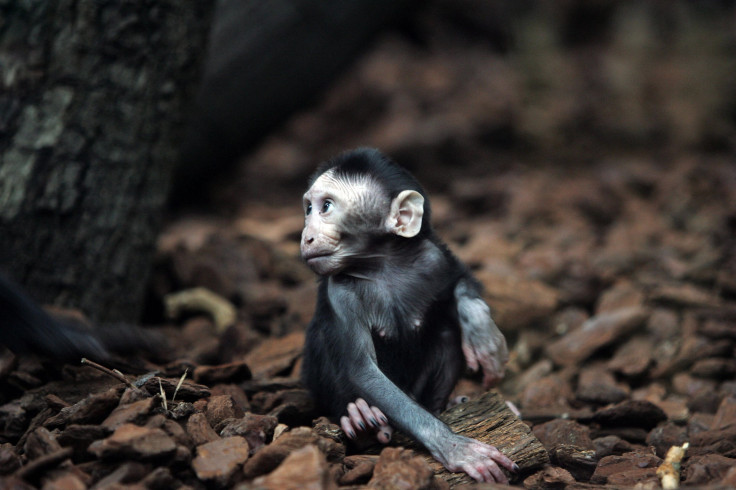PETA Monkey Selfie Lawsuit: Animal Rights Group Wants Crested Macaque To Own Copyright For Photos

People for the Ethical Treatment of Animals (PETA) wants a macaque monkey, who took some famous selfies in 2011, to be the copyright owner of the pictures, according to a federal lawsuit filed by the animal rights group Tuesday. The filing stated the group sought a court order to authorize PETA to manage income from the selfie images and use it for the benefit of the monkey and its community.
The grinning selfies of 6-year-old Naruto, a rare crested macaque, were taken in 2011 during British nature photographer David Slater’s trip to the Indonesian island of Sulawesi. The monkey snapped the pictures when Slater left his camera unattended, the lawsuit, filed in San Francisco district court, stated.
“The monkey selfies resulted from a series of purposeful and voluntary actions by Naruto, unaided by Slater,” the filing read. “Naruto has the right to own and benefit from the copyright ... in the same manner and to the same extent as any other author,” it added.
"Our argument is simple: U.S. copyright law doesn't prohibit an animal from owning a copyright, and since Naruto took the photo, he owns the copyright, as any human would," PETA said in a statement.
Thanks to PETA, the selfie monkey scandal will never end http://t.co/MclMjXTkNf pic.twitter.com/S3NbcLSyeJ
— Gizmodo (@Gizmodo) September 22, 2015According to Slater, he positioned his tripod and orchestrated the selfie shoot. He said that the British copyright gained for the photos by his company, Wildlife Personalities Ltd., should be respected throughout the world.
"The facts are that I was the intellect behind the photos, I set the whole thing up," Slater told the Associated Press (AP). "A monkey only pressed a button of a camera set up on a tripod -- a tripod I positioned and held throughout the shoot," he added.
Slater told Reuters that he was “rather bemused” and mistreated by the lawsuit, which he said looked like a publicity stunt. The photographer also added that he was disappointed that PETA did not contact him in advance. However, he defended his rights to earn money from the photos.
“I am sympathetic in my book for animals having rights to property in some circumstances, but in no way do I mean copyrights,” Slater told Reuters. “Their focus seems more aimed at making me out to be a criminal than someone who loves and respects and fights for animals ... I have to wonder what are the true motives behind this attack on me,” he said.
The animal rights group's claims have garnered some support -- Antje Engelhardt of Georg-August University, Gottingen, Germany, backed PETA’s lawsuit and David Favre, a Michigan State University law professor, told AP that the copyright issue was "a cutting edge legal question."
However, for Laurence Tribe , a Harvard Law School professor, the lawsuit “trivializes” animal rights issue, according to AP.
"It trivializes the terrible problems of needless animal slaughter and avoidable animal exploitation worldwide for lawyers to focus so much energy and ingenuity on whether monkeys own the copyright in selfies taken under these contrived circumstances," Tribe said.
© Copyright IBTimes 2024. All rights reserved.






















